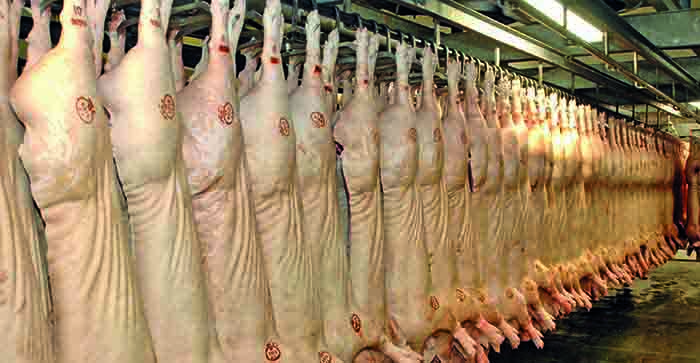The NPA has called for a further extension of the Slaughter Incentive Payment Scheme (SIPS), as the first follow-up meeting to the February 10 pig industry crisis summit took place last week.
The meeting, attended by the NPA and NFU, individual pork processors, the British Meat Processors Association (BMPA) and the Association of Independent Meat Suppliers (AIMS), was again chaired by Farming Minister Victoria Prentis.
NPA chief executive Zoe Davies said the Minister was clearly determined to help the pig industry and ensure processors and retailers do everything in their powers to tackle the pig backlog and the wider issues the industry is facing.
“The Minister fully understands the problems pig farmers are living with and the scale of this crisis and she has listened to what we are saying needs to happen,” Dr Davies said. “Her laser focus on specific issues that we have asked to be addressed has been tremendously helpful and we remain grateful for her continued interest in this issue with so many other demands on her time. “
SIPS changes
The recent changes to the SIPS, announced after the original summit have a positive difference and helped to boost plant throughput. The scheme, which incentivises processors to put on extra kills, is currently due to close at the end of March, which the NPA says is too soon.
“Allowing pork from SIPS kills to be sold on the domestic market has made it more attractive to processors and we are starting to see more of these additional shifts take place,” Dr Davies said. “This is the only measure so far that has had any impact on reducing the backlog, but, given the sheer numbers of pigs to get through, we need it to continue beyond March.”
Backlog plans and retail support
Mrs Prentis questioned each processor individually on their plans for reducing the backlog, including asking about additional shifts, number of extra pigs killed and planned for and how they prioritise within their own supply chains.
Whilst retailers were deliberately not invited to this meeting, Mrs Prentis is going to meet them individually from next week, as well as hospitality and wholesale businesses that buy pork. She asked for specific information on unclear labelling and buying practises and NPA will be providing a briefing.
Dr Davies added: “A lot of the retailers are really going out of their way to be supportive, which we thank them for. However, there is more that all of them can do in terms of paying more for the raw material which will be incredibly important as input costs continue to rise.
“One retailer has said it would stock more British pork, but could only do so if more product was available. However, it is clear from speaking to processors that there is plenty of British pork available at the moment, and there will be a lot more over the coming weeks and months as we work through the backlog.
“This is a great opportunity for all retailers to up their volumes of British pork, pay for the product what it costs to produce and do their bit for the struggling British pig industry.”
“Over the next few weeks, we will continue to put the spotlight, through the #PorkReport, on retailers’ sourcing and labelling policies.
Mrs Prentis has also met the agricultural leads of the big banks, who she said had assured her assured they were being ‘flexible’ when it comes to struggling pig businesses. She asked those present to report back if issues were being seen on the ground however.
Mr Prentis has also discussed the pig industry’s issues with the Home Office and will be organising another meeting with processors and the NPA to discuss visas in the coming weeks.
Compensation calls
NFU president Minette Batters, who has been a huge supporter of the British pig industry during the crisis, was also at the meeting and she reiterated the NPA’s calls for financial support from Government for producers. The NPA will be working with the NFU to develop the case for support.
Dr Davie added: “Whilst Defra is still resolutely sticking to their position that their support has been targeted at processors to ease the backlog, with the growing issues surrounding input prices as a result of the Ukraine Russia war, we believe there is now a far stronger case to argue for exceptional market conditions and secure a case for compensation.”




